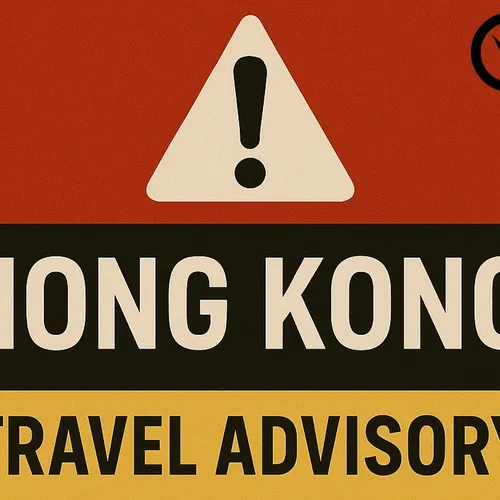Travel to Hong Kong in 2025: Essential Safety Tips and Precautions for Informed Tourists Navigating Legal, Health, and Weather Risks
- Author
- Quiet. Please
- Published
- Wed 20 Aug 2025
- Episode Link
- https://www.spreaker.com/episode/travel-to-hong-kong-in-2025-essential-safety-tips-and-precautions-for-informed-tourists-navigating-legal-health-and-weather-risks--67458485
Listeners planning travel to Hong Kong in August 2025 should be aware that official sources, such as the U.S. Department of State, currently assign Hong Kong a Level 2 travel advisory, meaning travelers are urged to exercise increased caution due to the risk of arbitrary enforcement of local laws and other concerns. Several governments, including Australia and Canada, also recommend a high degree of caution, citing that Hong Kong’s national security laws can be interpreted broadly and there is a risk individuals could be detained without charge and denied access to legal representation. Travelers should familiarize themselves with local regulations and avoid involvement in demonstrations, as such participation could lead to criminal charges according to U.S. State Department guidelines.
Petty crime, especially pickpocketing and purse snatching, occurs in busy areas like public transportation hubs, popular tourist districts, and night markets. While violent crime is uncommon, it is still important to keep valuables secure and avoid carrying large amounts of cash. Drink spiking, particularly in nightlife zones such as Wan Chai, has been reported, sometimes resulting in robbery or fraud. To mitigate these risks, listeners are advised not to leave drinks unattended, not to accept beverages from strangers, and to use ATMs located within banks or reputable hotels to reduce the risk of card skimming. Self-defense devices—including pepper spray and stun guns—are illegal in Hong Kong, and their possession can lead to arrest.
Extreme weather is a significant risk, particularly from May to October, when the region experiences its rainy and typhoon season. Climate change is making severe storms, flooding, and landslides more frequent and disruptive, occasionally leading to transport cancellations and infrastructure problems. For up-to-date information, travelers should consult the Hong Kong Observatory for weather alerts and plan to adapt their itinerary as needed. During the hot and humid months, dehydration and heatstroke pose serious health risks, and air pollution can reach hazardous levels, so limiting outdoor exposure and monitoring government health advisories is recommended.
Medical care for tourists is generally more expensive than for local residents, making comprehensive travel insurance a necessity. Insurance should specifically cover the types of activities in which listeners will participate, including any adventure sports. Carry essential medications, and consult a doctor prior to travel for any health precautions or required vaccinations such as hepatitis A and B or typhoid. Staying informed of local health alerts, for example about diseases like mpox, is important and can be done through the Hong Kong Department of Health.
Entry regulations can change quickly, sometimes requiring proof of vaccination or digital health checks, so confirm all requirements with your airline and official government sources immediately before departure. Emergency services in Hong Kong can be reached at 999 for police, medic, or fire assistance.
For anyone considering travel to Hong Kong at this time, the key is a high degree of caution: keep up to date with legal developments, stay alert to weather and health advisories, safeguard personal security and possessions, and make sure you have robust insurance coverage before departure to protect against unexpected events.
